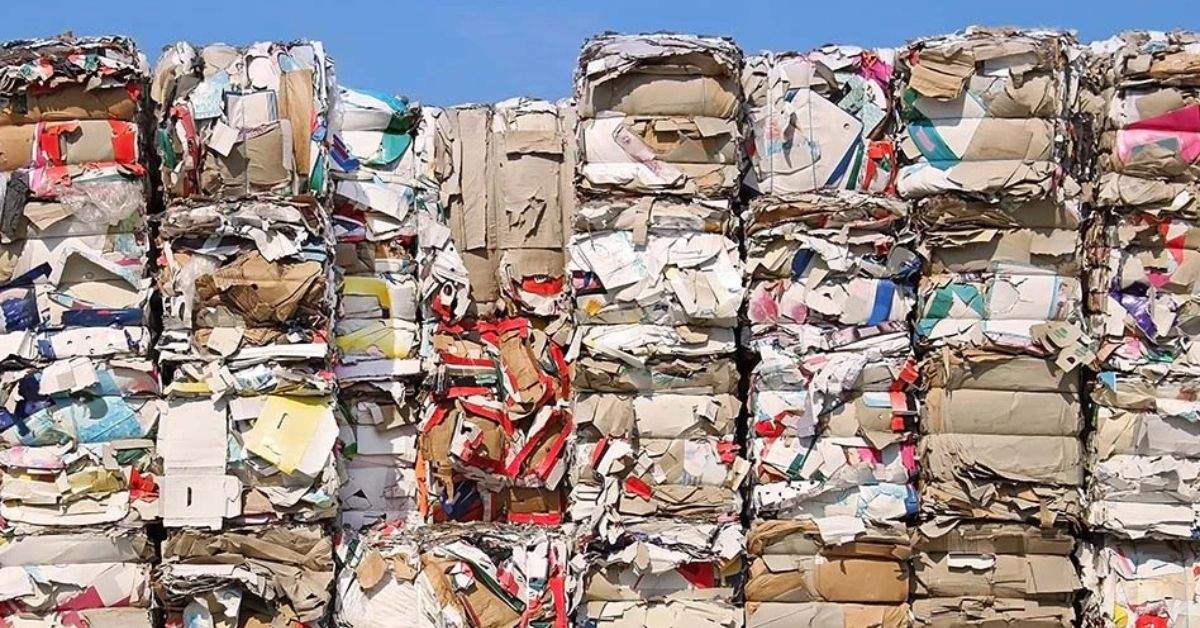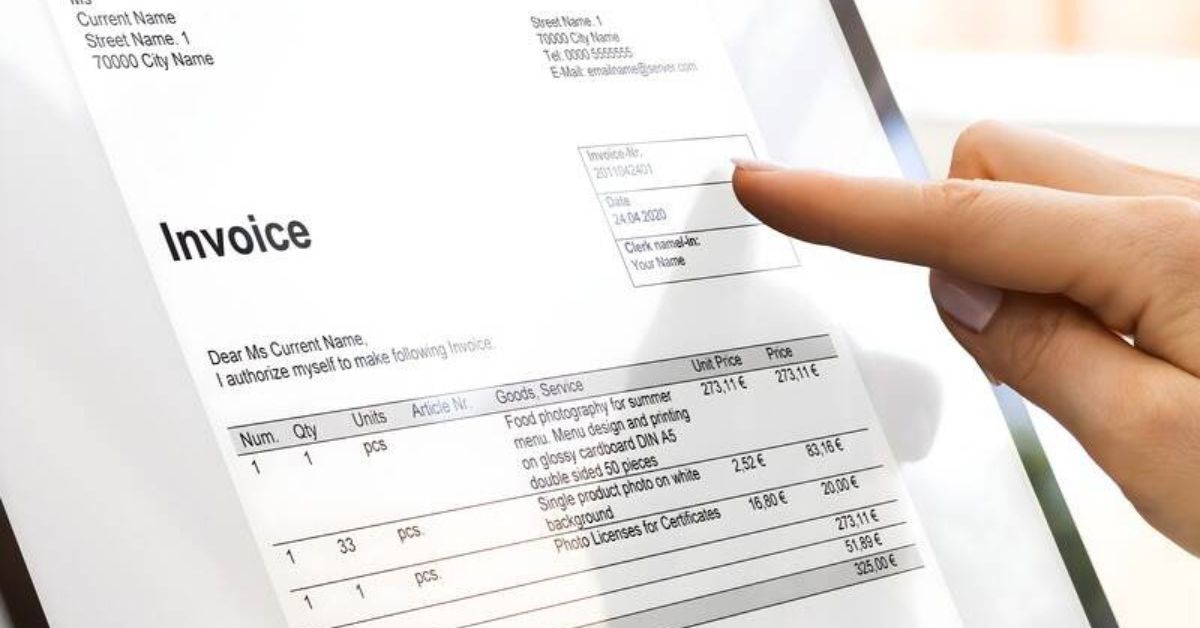What Every Indian Needs to Know About Tackling The Country’s Paper Waste Problem
(Representational image courtesy Telegraph India)
When was the last time you printed a document, scribbled notes on a notepad, or tossed out an old newspaper without thinking twice? These small acts seem harmless in the quiet hum of our daily lives. But they are adding up across India, to a much larger crisis than we realise.
At first glance, paper seems benign. After all, it’s biodegradable, renewable — right? Yet, behind every sheet lies a story of fallen forests, drained rivers, and exhausted resources.
Today, India ranks among the largest consumers of paper globally. With rising literacy rates, booming businesses, and growing packaging needs, our paper consumption is projected to reach 30 million tonnes by 2027.
 A lot of resources have to be depleted for creating a single sheet of paper. Picture source: Recycling Today.
A lot of resources have to be depleted for creating a single sheet of paper. Picture source: Recycling Today.
And that’s just part of the problem. Producing one tonne of paper requires 17 trees and 324,000 litres of water. Beyond trees and water, paper production emits significant carbon dioxide and often involves toxic chemicals like chlorine for bleaching. Paper waste in landfills produces methane, a greenhouse gas 25x more potent than CO₂.
In a country where deforestation is depleting our green cover and over 600 million Indians face high-to-extreme water stress (a situation where the water demand exceeds the available supply), this is no longer just about waste; it’s about survival.
How India is already fighting back
But here’s the hopeful part: Across India, people are waking up to the paper problem and rewriting the story.
In 2022, Delhi University (DU) decided to go paperless in its administrative activities except for its usage in examinations and mark sheets.
In Delhi, startups like myBillBook and KhataBook are helping thousands of small businesses shift from traditional paper-ledgers to digital billing systems. At popular cafes and stores, printed receipts are becoming optional, sent via SMS or email instead, cutting down significantly on daily paper use.
In Mumbai, eco-conscious offices in hubs like BKC have introduced ‘Print only if necessary’ policies. Printers are set to double-sided printing by default, and employees are encouraged to use apps like Notion, Evernote, and Google Docs for note-taking and documentation. In just one company with 500 employees, this simple shift saved over 500,000 sheets of paper in one year.
 ‘Print only if necessary’ lets people make strategic decisions to reduce paper usage in offices. Picture source: iPhotography.
‘Print only if necessary’ lets people make strategic decisions to reduce paper usage in offices. Picture source: iPhotography.
Meanwhile, in smaller towns like Coimbatore and Pune, NGOs such as Earth5R are teaching students and communities how to recycle used paper into greeting cards, notebooks, and even hand-made seed paper, where the paper itself can be planted to grow herbs and flowers!
At the citizen level, too, change is brewing.
Residents’ Welfare Associations (RWAs) in cities like Bengaluru are organising ‘Zero-waste events,’ where no paper plates, pamphlets, or paper decorations are used. Instead, digital invites, cloth banners, and reusable materials have become the norm.
Each of these actions may seem small, but together, they form a powerful movement toward saving India’s forests and water resources.
5 simple actions you can take
1. Rethink before you print
Before you hit ‘Print’, pause.
Ask yourself: Do I really need a hard copy?
Switch to digital notes using apps like Google Docs, Evernote, or Notion. If you must print, change your settings to double-sided printing and use smaller fonts to save paper. Even using scrap paper for quick notes can reduce waste dramatically.
Real Example:
In schools across India, EuroSchool has integrated digital tools into its educational framework, encouraging students to use digital textbooks, take notes online, and rely on e-resources instead of printed materials, significantly reducing paper usage while promoting eco-conscious values.
2. Say ‘No’ to paper bills and receipts
Every time you buy something, you have a choice.
Opt for SMS or email receipts instead of printed ones. Sign up for e-billing with your bank, mobile operator, and electricity provider. It only takes a minute to switch, and saves trees over your lifetime.
 Opting for an e-bill eliminates the use of paper that ultimately get thrown in the bin. Picture source: Invoice simple
Opting for an e-bill eliminates the use of paper that ultimately get thrown in the bin. Picture source: Invoice simple
Real example:
Bilzo is an Indian e-billing provider that enables stores to send digital receipts and serve personalised customer retention programs via platforms like WhatsApp. By transitioning from paper to digital receipts, it also helps businesses reduce paper consumption and enhance customer engagement.
3. Swap to reusable and recycled products
Buy notebooks, printer paper, and even tissues made from 100% recycled paper.
Use cloth napkins instead of paper ones at home. Carry a reusable cloth bag instead of grabbing a paper bag every time you shop.
Real example:
Rescript, a startup, is creating paper and stationery out of 100% recycled paper and eco-friendly materials. By opting for their products, you can also support their goal of saving 30,000 trees and 6,00,00,000 litres of water by 2025
4. Share and reuse paper creatively
Old calendars? Flip them and use the blank sides for shopping lists. Old magazines? Turn them into DIY gift wraps. Paper that’s printed on only one side? Make notebooks from them.
 Get creative and make handmade gift wrappers out of old magazines and newspapers. Picture source: The New York Times.
Get creative and make handmade gift wrappers out of old magazines and newspapers. Picture source: The New York Times.
Real Example:
In Bengaluru, NGOs like Hasiru Dala teach kids how to create handmade notebooks from scrap paper, reducing waste and spreading awareness at the same time.
5. Recycle responsibly
Set up a separate bin at home just for paper waste.
But remember: only clean, dry paper can be recycled. Wet, greasy, or food-stained paper needs to go into the compost. Work with your local kabadiwala (scrap dealer) or find recycling programs in your city.
Real example:
In Thane, Maharashtra, ‘ScrapJi’ is accelerating waste management by collaborating with residential communities to streamline trash recycling. They offer door-to-door scrap collection services, ensuring that paper and other recyclable materials are efficiently gathered and processed. Their tech-enabled approach not only simplifies waste disposal for residents but also contributes to a larger vision of a trash-free India by 2030.
You don’t have to overhaul your life to make a difference.
One fewer printed receipt, one reused envelope, one recycled newspaper — it all adds up.
When millions of Indians act together, the ripple effect can save thousands of trees, billions of litres of water, and millions of kilowatt hours of energy every single year.
Edited by Vidya Gowri Venkatesh and Leila Badyari Castelino.
News